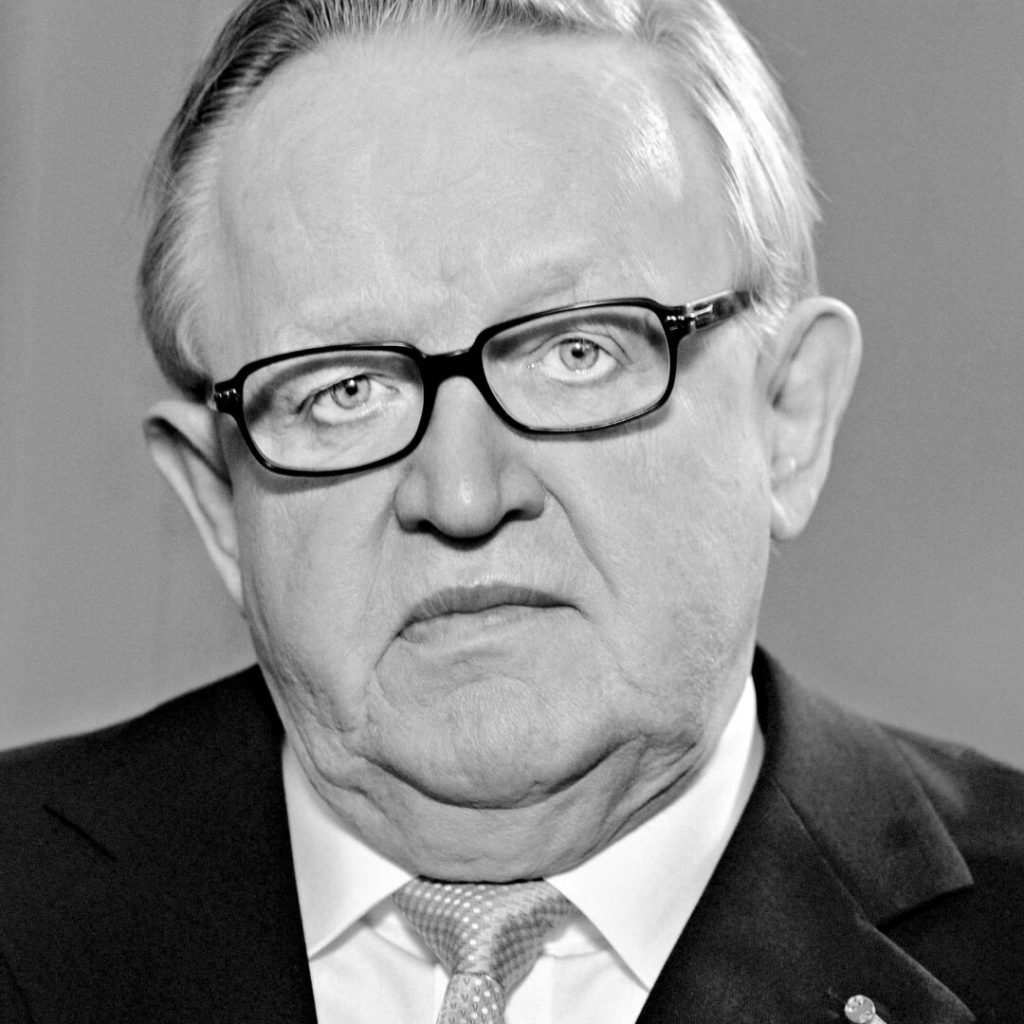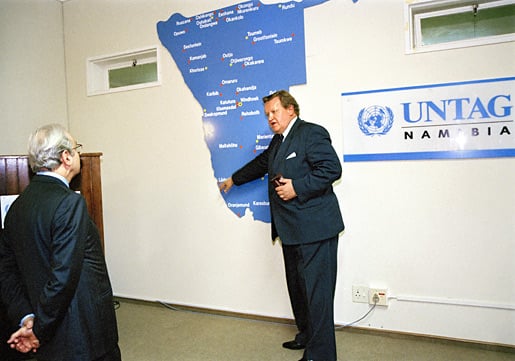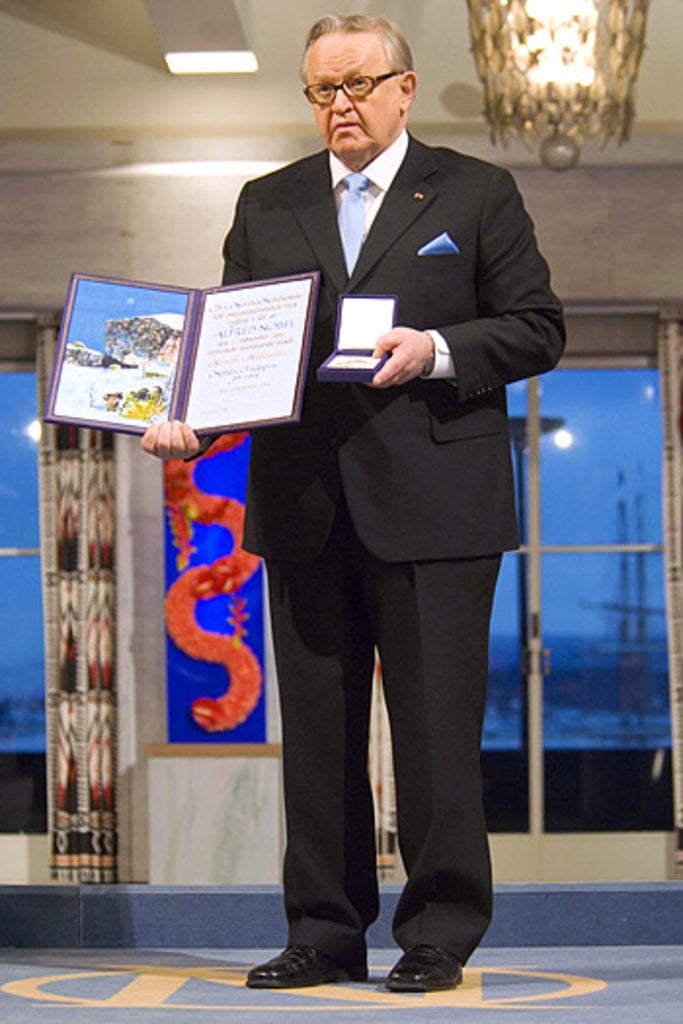Martti Ahtisaari
Speed read
Martti Ahtisaari was awarded the Nobel Peace Prize for his important efforts, on several continents and over more than three decades, to resolve international conflicts.

Full name: Martti Ahtisaari
Born: 23 June 1937, Viipuri (now Vyborg), Finland
Died: 16 October 2023, Helsinki, Finland
Date awarded: 10 October 2008
All conflicts can be solved
For more than three decades, former Finnish President Martti Ahtisaari has played a key role as peace mediator in some of the world’s most serious conflicts. He first became widely known for his efforts in the negotiations culminating in Namibia’s independence in 1990. Ahtisaari himself considers this the most important achievement in his work for peace. Since 1998, he has been involved in peace-making between Kosovo and Serbia, and in 2005, he was appointed UN Special Envoy in conjunction with the talks on Kosovo’s final status. In 2001, he monitored the disarmament of the IRA in Northern Ireland. In 2005, Ahtisaari and his organisation Crisis Management Initiative (CMI) successfully negotiated a peace agreement between the insurgents in the Aceh Province and Indonesian authorities.
"We should never accept that some conflicts remain frozen forever."
Martti Ahtisaari, Paris, 2. October 2008.
Excerpt from the announcement
“Although the parties themselves have the main responsibility for avoiding war and conflict, the Norwegian Nobel Committee has on several occasions awarded the Nobel Peace Prize to mediators in international politics. Today Ahtisaari is an outstanding international mediator. Through his untiring efforts and good results, he has shown what role mediation of various kinds can play in the resolution of international conflicts. The Norwegian Nobel Committee wishes to express the hope that others may be inspired by his efforts and his achievements.”
Oslo, 10 October 2008
Long-term commitment in Namibia
Martti Ahtisaari played a leading role in the UN’s work in Namibia from 1977, first as High Commissioner and later as Special Envoy of the UN Secretary-General. From April 1989 to March 1990 he headed the UN Transitional Assistance Group (UNTAG) in Namibia. The aim was to carry out free and democratic elections. UNTAG helped make Namibia an independent nation on 1 April 1990. The operation is regarded as one of the most successful in UN history, among other things because a large number of women were mobilised to vote. Ahtisaari also recruited a record-high number of female co-workers to UNTAG.

Copyright © UN Photo. Photo: John Isaac
"Peace can never be achieved by one single person."
Martti Ahtisaari, Paris, 2. October 2008.
Organisation for sustainable peace and security
The Crisis Management Initiative (CMI) was founded by Martti Ahtisaari in 2000. Ahtisaari, who chairs the organisation, believed the world needed politically independent bodies that could arbitrate in international crises. The CMI works with international conflict prevention, conflict resolution, crisis management and sustainable security. In 2005, the organisation had a central role in resolving the complicated Aceh situation in Indonesia. The CMI has its head office in Helsinki.
In the spirit of Alfred Nobel
The Norwegian Nobel Committee awarded the peace prize to Ahtisaari “for his important effort, on several continents and over more than three decades, to resolve international conflicts. These efforts have contributed to a more peaceful world and to “fraternity between nations” in Alfred Nobel’s spirit”. “A classic peace prize in the spirit of Nobel” was one of the most common reactions to the news that the prize was awarded to Ahtisaari. Norway’s Prime Minster Jens Stoltenberg said: “It is a well-deserved prize to a man who has helped build peace and provide hope to many people in many countries.”

© The Nobel Foundation 2008.
Photo: Ken Opprann
Learn more
Martti Ahtisaari was born on June 23, 1937 in the city of Viipuri, then still part of Finland. Finland lost Viipuri when the Soviet Union attacked the country...
Nobel Prizes and laureates
Six prizes were awarded for achievements that have conferred the greatest benefit to humankind. The 12 laureates' work and discoveries range from proteins' structures and machine learning to fighting for a world free of nuclear weapons.
See them all presented here.
